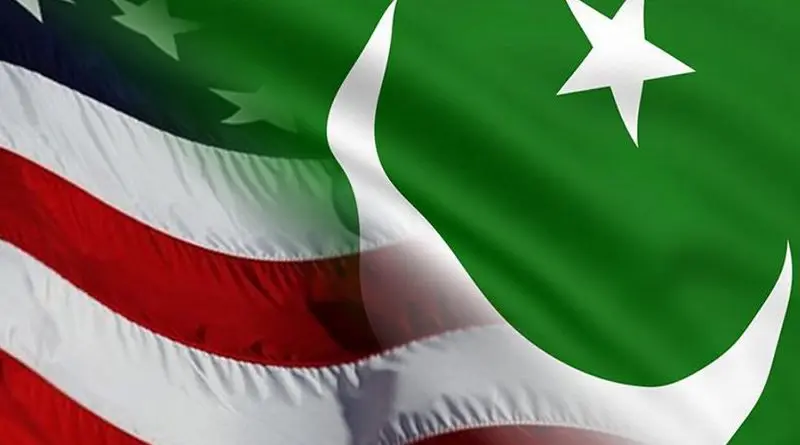After Bin Laden, Key U.S.-Pakistan Questions
The U.S. killing of Osama bin Laden in Pakistan has made the two countries’ already complicated relationship even more difficult. Pakistan expert Dr. Shabbir Cheema, director of Governance and Democracy Initiatives at the East West Center, answers some key questions about likely impacts.
What has been the Pakistani public’s reaction to the raid?
People are asking: Where was the military? How much was Pakistan actually involved in this operation? Because in the view of many people it is unimaginable that this type of raid could take place so close to the military cantonment in Abbottabad. Did elements of the military stand down intentionally during the raid?
In general, the government response has been quite weak, and I think one result of the raid will be to turn public opinion even further against the civilian government, which is already extremely unpopular. Through its embassy in Washington, the Pakistani government has said it will conduct its own investigation about the intelligence failure, but it has not provided any detailed information.
What is the likely impact of the raid on U.S.-Pakistan cooperation?
The U.S. will try to re-negotiate the terms of the relationship to include continued presence of the CIA and its contractors. After CIA contractor Raymond Davis was arrested for shooting two Pakistanis in Lahore and subsequently returned to the U.S., Pakistan’s intelligence service had an upper hand. They tried to renegotiate the secret terms of engagement that former President Pervez Musharraf had agreed to, demanding that the U.S. reduce its intelligence presence in the country. The U.S. rebuffed that attempt. Now, with the Pakistani establishment embarrassed over bin Laden’s discovery so close to a major military installation, the U.S. will try to intervene even further – challenging Pakistan’s sovereignty more than ever before.
Despite massive public opposition to this, however, the on-going cooperation between the two countries will continue because of their deep mutual dependence. The objectives of both are the same – to combat extremism and stabilize Afghanistan; they just have extremely divergent views on how to do it.
What do you think the impact will be on the war in Afghanistan and the broader war on terror?
There is not likely to be an immediately obvious impact, because Osama bin Laden was not a day-to-day manager of the extremist jihad. But one of the most important consequences of Osama’s death is likely to be a more rapid withdrawal of U.S. troops from Afghanistan.
The U.S. went to war in Afghanistan for two reasons: to overthrow the Taliban and capture or kill bin Laden. Having now achieved both of these, America is likely to declare victory and withdraw sooner rather than later. In the U.S., public support for nation-building in Afghanistan is very low.
Recognizing this, however, Pakistan will now be even less likely to withdraw its covert support for certain militant groups that can help it maintain its influence in a post-U.S. Afghanistan – such as the Haqqani network, which will emerge as one of the most powerful Taliban groups after the U.S. withdrawal.
What do you think the effect might be on domestic politics, both in Pakistan and the U.S.?
In the U.S., the raid that killed Osama bin Laden is likely to give a significant boost to President Obama’s re-election prospects, because this is such an emotional issue for the average voter. However, the U.S. Congress will likely become even more hostile to Pakistan, and will try to cut aid or add conditions, probably without success. The U.S. and other Western media will continue to beat up on Pakistan, strongly supported by coercive diplomacy from India.
The impact on Pakistani politics is likely to be more negative. Here is a country that is the biggest victim of terrorism, having lost more civilians and soldiers than the U.S. and all NATO countries put together. At the same time, the country has the most negative image in the world as a sponsor or facilitator of terrorism.
The Pakistani public is extremely angry – both at its own government, which is seen as inept and corrupt, and at the U.S., which is considered untrustworthy, arrogant and a root cause of political violence in Afghanistan and Pakistan. This may or may not be borne out by facts, but these are the perceptions.
One of the lessons I have learned over the past 10 years is that the economic aspect of U.S. engagement in Pakistan is undercut by the military aspect. The U.S. provides significant economic assistance, but uses drones and other military action that challenges Pakistani sovereignty and embarrasses the democratic government, contributing to the increasing radicalization of the society.
Is there any solution that you can see?
In spite of everything, I’m optimistic. I think the mutual dependency of these two countries is so great that they will be forced to find common ground.
However, the basis of the U.S.-Pakistan relationship needs to be changed from a transactional interaction to a true partnership. The protection of its sovereignty and vital strategic interests are the red line for Pakistan, yet its military and political leaders are not taking decisive action to reduce the country’s economic dependence on the U.S. by increasing the country’s dismal tax base.
On America’s part, it needs to engage with Pakistan in resolving fundamental policy issues, such as negotiations with the insurgents, direct involvement of Pakistan in any Afghan peace plan, limiting India’s role, and promoting an Afghan government in which the country’s majority ethnic group, the Pashtuns, feel included – which is not currently the case.

